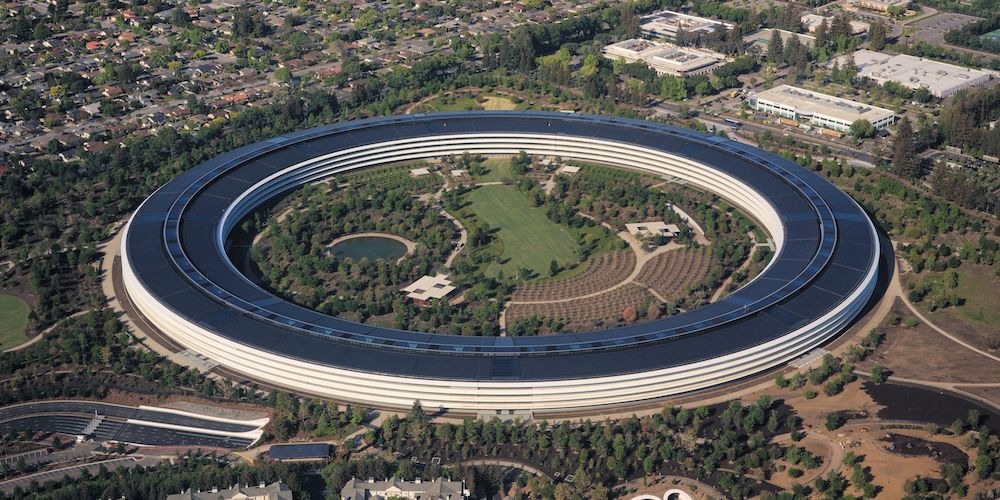Apple staffers suffer work-from-home setbacks due to security guidelines, travel bans
Many Apple Park employees have been working from home since early March, before the Bay Area and the state of California implemented shelter-in-place orders.

While COVID-19 is impacting virtually every sector of the tech industry, a new report claims that Apple is experiencing some unique setbacks because of its culture of secrecy and lack of access to prototyping tools and test rigs.
CEO Tim Cook first began urging employees to work from home whenever possible in early March to help combat the spread of COVID-19. Since then, government stay-at-home orders have mandated that, and Apple has also shuttered all of its retail locations outside of greater China and issued global remote work orders.
Some of the issues that remote Apple employees have faced have been discussed before, including snared network speeds and confusing security guidelines. Now, a recent report from The Information is taking a closer look at some of the difficulties Apple's employees are facing.
Security restrictions and Apple's broader secrecy cultures are causing some of the bigger issues. According to insider sources, most hardware prototyping has been brought to a standstill, since Apple's guidelines require those processes to be done in secure labs. Some staffers have resorted to drawing diagrams in the air, since they've had to leave sensitive components back at the office.
The inability to use in-office equipment has also complicated stress and drop tests, as well as any prototyping process requiring 3D printers or milling machines. Because of the issues, Apple has created new protocols to bring components from future hardware home with them.
Apple is also especially reliant on face-to-face meetings and internal file-sharing and communications software, though The Information reports that the company has been loosening restrictions on third-party platforms like Box, Slack or Cisco's WebEx systems.
Some employees have found it difficult to use Apple's own consumer platforms, like FaceTime or iMessage, because they weren't designed for enterprise uses. And while many staffers just aren't used to video conferencing with other employees, one major struggle is slow internet connections. One source, for example, lives in an apartment with four other people.
Apple has taken steps to make remote work more comfortable, such as issuing ergonomic desk advice and allowing staffers to expense office supplies and furniture.
The Cupertino tech giant's operations in China have similarly suffered. Although Apple's supply chain is normalizing and the country has largely slowed the spread of coronavirus, travel restrictions have forced Apple employees to come up with creative ways to work with its partners.
Part of the response includes an increased number of back-and-forth communications, including photos, with Chinese assembly partners. Some Apple staffers worry that this could lead to product leaks, however, and delays in responses can also derail critical fixes of hardware or supply line issues.
Many of Apple's supply partners are used to playing a supporting role, and U.S.-based employees communicating with them remotely have had to rely on low-resolution or grainy photos to issue instructions. Even the picture-taking process has a set of security guidelines, with tight restrictions on who can handle cameras and which computers are used to upload them.
Some employees also told The Information that they hope Apple will continue to allow flexible and remote work options after COVID-19. Even prior to the outbreak, some staffers have been "clamoring" for just that.
But while the coronavirus pandemic has undoubtedly been a roadblock for Apple, one executive at an Apple supplier said the Cupertino tech giant isn't showing any signs of slowing down. Apple has continued to place a steady stream of orders, echoing previous reports suggesting that the pace of production hasn't become sluggish.
Apple now expects to reopen at least some retail locations in the first half of April, according to an internal memo. Chief of retail and people Deirdre O'Brien also added that the company would be re-evaluating current work-from-home policies on a weekly basis after April 5, depending on a staffer's location. It isn't clear how the new federal guidelines on social distancing until the end of April will apply to Apple's plans.
 Mike Peterson
Mike Peterson










 Malcolm Owen
Malcolm Owen
 William Gallagher and Mike Wuerthele
William Gallagher and Mike Wuerthele
 Christine McKee
Christine McKee
 William Gallagher
William Gallagher

 Marko Zivkovic
Marko Zivkovic









